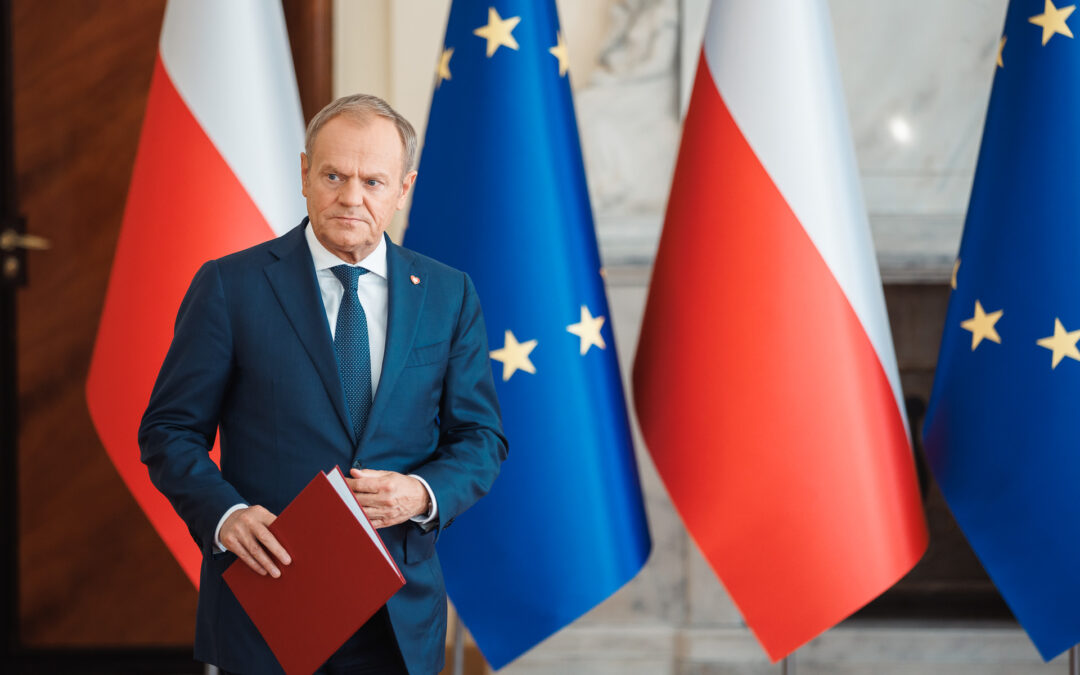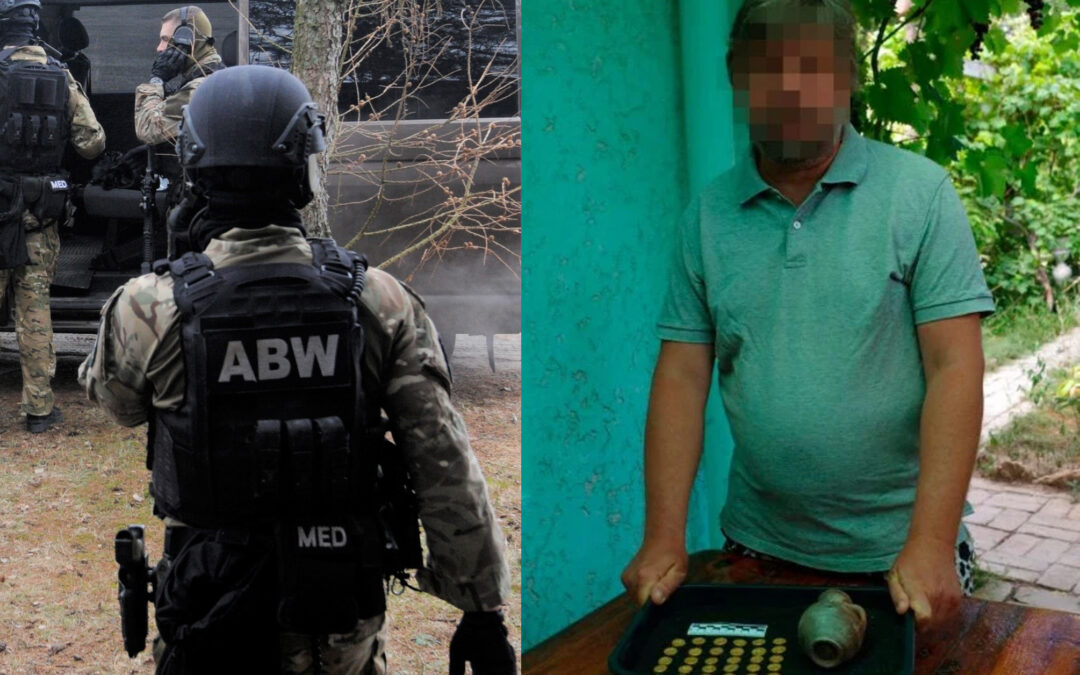By Daniel Tilles
OPINION
By failing to hold the new government to the same standards as it did the previous one, the international community risks allowing continued violations of democratic norms and substantiating the former ruling party’s claims that the criticism it faced was purely political.
In 2021, in response to a surge in attempted crossings by migrants at the border with Belarus, including acts of aggression towards Polish officers, Poland’s then government created an exclusion zone along parts of the border. It banned unauthorised people, including journalists and humanitarian workers, from entering the area.
The decision prompted widespread condemnation from international organisations. The Council of Europe’s commissioner for human rights, Dunja Mijatović, called it “harmful” and “alarming”.
Reporters Without Borders (RSF) described the measures as “arbitrary and disproportionate” and declared a “press freedom state of emergency” in Poland. The International Press Institute (IPI) and European Federation of Journalists (EFJ) jointly condemned the “unprecedented information blackout”.
I call for immediate access of international and national human rights actors and media to Poland’s border with Belarus to end human suffering and violations of human rights.
Read my statement after a 4-day visit👇https://t.co/8S8PoZh0mC— Commissioner for Human Rights (@CommissionerHR) November 19, 2021
This month, in response to a surge in attempted crossings by migrants at the border with Belarus, including acts of aggression towards Polish officers, Poland’s current government created an exclusion zone along parts of the border. It banned unauthorised people, including journalists and humanitarian workers, from entering the area.
This time, however, there has been no comment from the Council of Europe’s commissioner for human rights, Michael O’Flaherty, nor from RSF, IPI or EFJ. Is that because this time the restrictions are less onerous? Not according to those on the ground.
“Entry to the [border] zone for the media and aid organisations is regulated in exactly the same way as…[in] 2021,” wrote OKO.press, a news website, after the introduction of the new exclusion zone this month.
One of its journalists who applied to enter the zone for a 10-hour period was told they could do so only for two hours and in just one narrowly specified location.
Poland’s human rights commissioner has criticised the exclusion zone introduced by the government on the Belarus border.
He says it will "interfere with basic constitutional freedoms" and "impede the provision of humanitarian assistance" to migrants https://t.co/i02RhM33Qx
— Notes from Poland 🇵🇱 (@notesfrompoland) June 17, 2024
So why the silence this time from international organisations?
It is hard to escape the conclusion that the current government – a centrist, pro-EU coalition led by former European Council President Donald Tusk – is being held to different standards than the populist, national-conservative, eurosceptic Law and Justice (PiS) party that ruled Poland from 2015 to 2023.
That suspicion is supported by a range of other cases in which the actions of the new government have been similar to those of its predecessor but have faced almost none of the same scrutiny and criticism.
During its time in power, PiS was rightly condemned for turning public media into a government mouthpiece, violating their statutory requirement to be neutral and instead using them to promote party propaganda.
In December, the new Tusk government mounted a highly controversial takeover of those state-owned outlets, using legal loopholes – some of which have later been deemed illegitimate by courts – to purge PiS-appointed managers and install its own as part of efforts to “depoliticise” public media.
While international media and organisations commented on those events, the gist of coverage was that you can’t make an omelette without breaking eggs: that the only way to restore the independence of the corrupted and captured public media was to take extreme measures.
Poland's new government deprograms its once far-right public media – Under Poland's Law and Justice party, the country's public broadcaster was turned into a propaganda tool for the far-right government to use as it wished. That era has come to an end. v… https://t.co/nIs6u23y4d
— Olav Mitchell Underdal (@omunderdal) February 19, 2024
Whatever one thinks of that argument, it only has validity if the independence of public media had indeed been restored. But it has not. State broadcaster TVP, for example, is still biased, but now in favour of Tusk’s government.
Demagog, a respected, independent Polish media monitoring and fact-checking outfit, analysed which guests the main TV and radio stations invited onto their main political discussion shows in May, amid campaigning for the European elections.
On TVP’s Pytanie dnia, which appears immediately after the main evening news, almost 90% of guests were from the ruling coalition. By contrast, private broadcaster Polsat had an almost 50-50 split between government and opposition guests on its Gość Wydarzeń discussion show.
A similar study conducted by the Centre for Monitoring Public Discourse (CMDP) in September 2017 – when PiS was in power – found that around 80% of guests on TVP’s post-news discussion show were from the ruling camp.
In a survey published this month that asked Poles which TV news station is the most objective, TVP Info came last, with less than 5% of respondents choosing it. That continues a pattern of polling during PiS’s time in power showing strongly negative views and high distrust towards the state broadcaster.
State TV is seen as the least objective news source among Poland’s main stations, according to a new poll.
Amid campaigning for the European elections, 90% of politicians appearing on TVP’s main evening news discussion show were from the ruling coalition https://t.co/LrYgDqvATQ
— Notes from Poland 🇵🇱 (@notesfrompoland) June 10, 2024
Of course, the nature of the bias at TVP has now changed. There are no longer the crude attacks on the government’s opponents – as well as on immigrants and LGBT+ people – that characterised the station’s coverage between 2015 and 2023. Yet, as the data above show, the bias is clearly still there.
But international commentators and organisations have said little. Without such pressure, the Tusk government has much less incentive to create a neutral public broadcaster and can instead treat TVP as part of the spoils of its election victory, just as PiS did.
There also appears to be a lack of such pressure when it comes to the rule of law. The Tusk government’s promises to “restore democracy” have been taken at face value, with international bodies acting as if this has already happened rather than waiting to see whether it really does.
This is very “Barack Obama gets Nobel Peace Prize for having good intentions”. https://t.co/1EIT5CQ19m
— Ben Stanley (@BDStanley) June 20, 2024
The European Commission, for example, unlocked billions of euros of funds frozen under the PiS government despite the new ruling coalition not having fulfilled the rule-of-law “milestones” that Brussels insisted PiS must implement in order to access the money.
Brussels says that the new government’s “action plan” for restoring the rule of law is sufficient for now, and insists that it will continue monitoring implementation. Tusk’s coalition has been working towards that plan, though largely through the preparation of draft legislation, little of which has been submitted to parliament, let alone approved by it.
The government can of course argue that undoing PiS’s legislative overhaul of the courts is impossible while PiS-allied President Andrzej Duda wields his veto until he leaves office in the middle of next year.
Yet before last year’s elections, as part of the 100 policies Tusk pledged to implement in his first 100 days in office, he included some relating to restoring the rule of law, despite being fully aware that Duda would be president. So far his government has not implemented any of them (as is the case with most of the 100 promises).
The government has only fulfilled 12 of the 100 policies @donaldtusk promised to introduce in his first 100 days in office, a period that finishes this week.
One of his MPs blames the fact they have to rule with coalition partners and a hostile president https://t.co/KpQxWOULxJ
— Notes from Poland 🇵🇱 (@notesfrompoland) March 18, 2024
One such pledge was to separate the roles of justice minister and prosecutor general. When PiS combined those positions and handed them to one person, Zbigniew Ziobro, it was widely criticised by international organisations, including the European Commission, which argued that it gave too much power to an individual and politicised the prosecutorial service.
Yet Tusk’s government, despite repeatedly declaring its desire to separate the two roles, has not yet done so. Instead, they are once again held by a single person, Adam Bodnar.
Anyone who values democracy, the rule of law and the separation of powers should be uncomfortable seeing Bodnar, in his role as prosecutor general, requesting that opposition MPs be stripped of immunity to face prosecution while at the same time serving as a government minister and a member of the Senate, the upper house of parliament.
The justice minister has asked parliament to lift the immunity of an opposition MP so he can face 11 charges relating to his time as a minister in the former PiS government.
He is accused of offences including participation in an organised criminal group https://t.co/S8m2Eq56S7
— Notes from Poland 🇵🇱 (@notesfrompoland) June 19, 2024
Perhaps the new government is genuinely intent on restoring the rule of law. Yet, as we have seen with the border exclusion zone – which the current ruling coalition criticised when in opposition but has now embraced – and public media, once in power it can be tempting to exploit all the tools now available to you. That temptation is all the stronger when you do not face external scrutiny for doing so.
During its eight years in power, PiS repeatedly broke taboos and shaped – or ignored – the law to its own benefit. The danger now is that it has set precedents which Tusk’s coalition can follow. It remains incumbent on the international community to continue to scrutinise the government’s actions, and to call out violations of democracy in exactly the same way as it would have had they been carried out by PiS.
Failing to do so also feeds perfectly into PiS’s longstanding narrative that the scrutiny it faced from the EU and other international bodies was in reality nothing to do with the rule of law and democracy, but was simply a politically motivated attack aimed at removing a conservative government that defended Poland’s interests and bringing to power a more liberal one that served foreign interests.
This thread is important. A systemic threat to the rule of law is removed through systemic measures, and not a mixture of initial measures, half-measures, and expressions of good intentions. Prematurely unlocking this money just fuels the argument that it was politics all along. https://t.co/oN1P9XnTGK
— Ben Stanley (@BDStanley) February 29, 2024
One does not have to accept the validity of that narrative to realise the danger of the international community providing substantiation for it by holding Tusk’s Poland to different standards than PiS’s Poland.
As PiS has shown in local and European elections this year, it remains a potent force, and any hint of double standards will be exploited by the party as it seeks to retain the presidency in 2025 and return to government at parliamentary elections scheduled for 2027.

Notes from Poland is run by a small editorial team and published by an independent, non-profit foundation that is funded through donations from our readers. We cannot do what we do without your support.
Main image credit: Krystian Maj/KPRM (under CC BY-NC-ND 2.0)

Daniel Tilles is editor-in-chief of Notes from Poland. He has written on Polish affairs for a wide range of publications, including Foreign Policy, POLITICO Europe, EUobserver and Dziennik Gazeta Prawna.



















